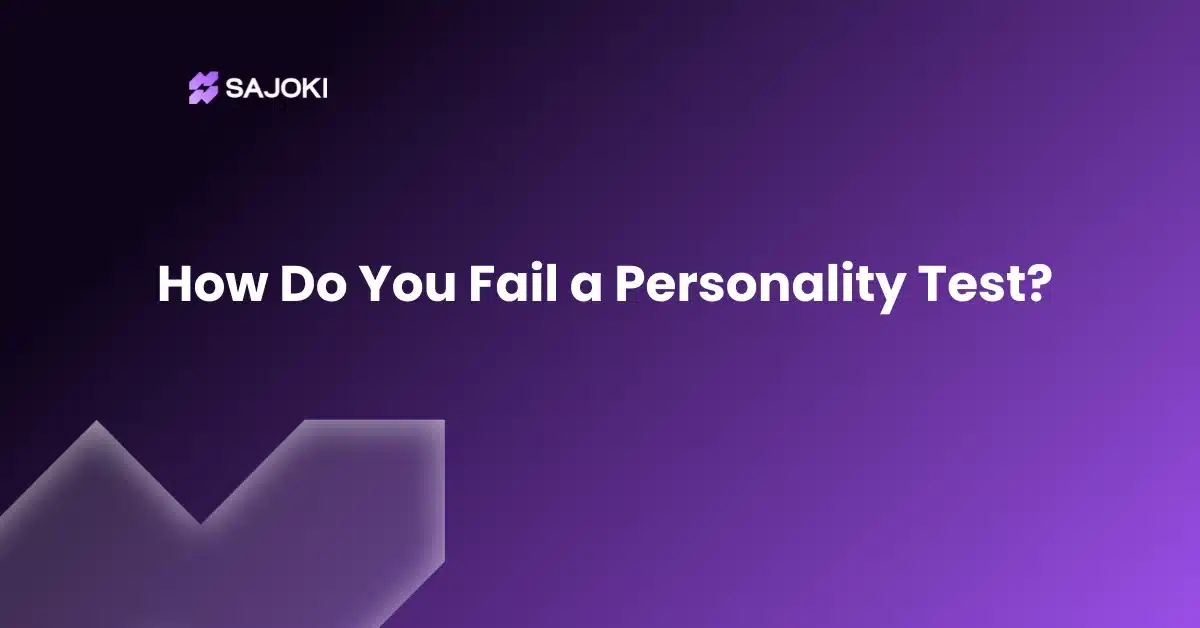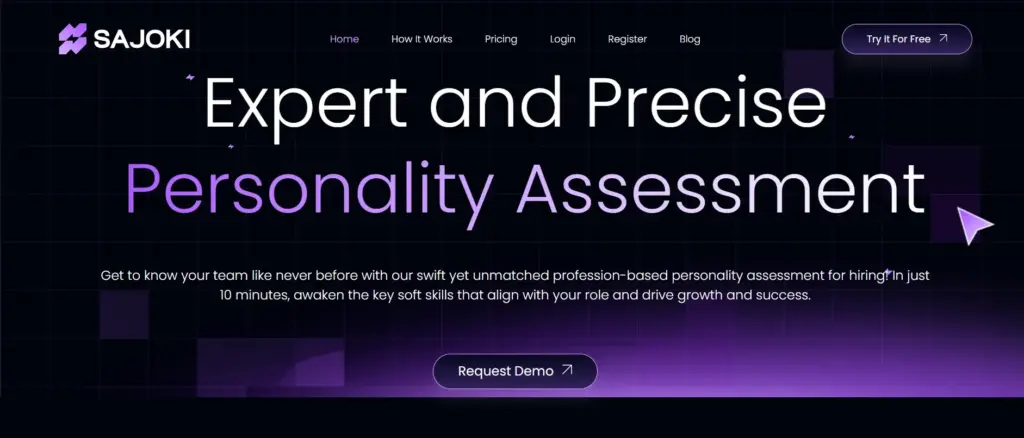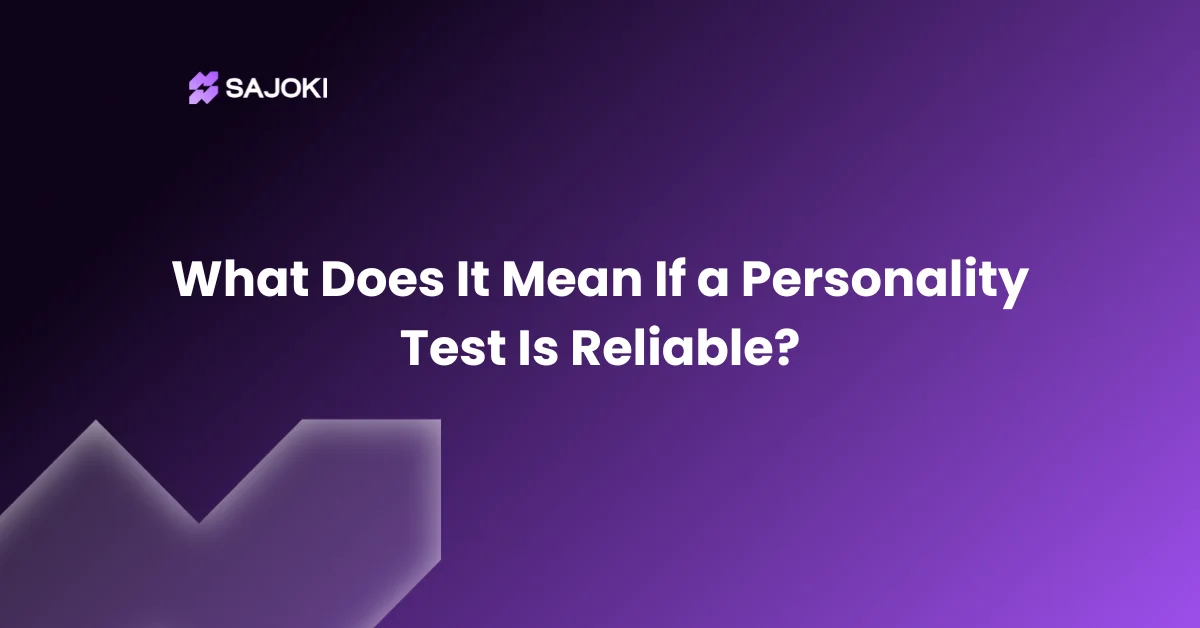Introduction
Personality tests are crucial in recruitment, or education. And the personal development programs, assessing behavior, traits, and decision-making skills to determine job fit. Many believe they cannot “fail” these tests, as they focus on innate tendencies rather than correct responses.
However, it is also possible to fail a personality test under certain circumstances. Providing conflicting responses, attempting to deceive, or not knowing the format of the test can lead to unwanted results. Low marks in essential areas like teamwork, leadership, or flexibility can exclude one from consideration for employment.
In this blog, we shall explore how it is possible to fail a personality test, avoid common mistakes, and improve performance on the tests. Read further to learn how to approach such tests strategically without negatively impacting your scores.
Knowing Personality Tests and Why They Matter
Personality assessments measure the traits, values, and work habits of an individual. They are used by employers and educators to decide whether a person is fit for a certain job. It enables organizations to make informed hiring decisions and lead people towards career opportunities where they excel.
There are different personality tests that measure various characteristics. The Myers-Briggs Type Indicator (MBTI), Big Five Personality Test, and SAJOKI’s AI-based tests are used in professional and academic settings. Understanding what each is for can help test-takers avoid a misstep.
Importance of Personality Tests:
- Helps employers select the right candidates.
- Identifies strengths and career paths.
- Builds balanced and efficient teams.
- Provides insights into behavior and skills.
- Helps diagnose personality disorders.
- Improves teamwork and communication.
How Do You Fail a Personality Test?: 8 Key Reasons
Failing or passing a personality test doesn’t mean getting a low score but rather failing to substantiate oneself in good traits for the job. Below are some of the ways one can fail these tests.
1. Providing Inconsistent Answers
Some personality tests contain questions that check for consistency. Responding to similar questions in opposite ways shows dishonesty or lack of knowledge about oneself. This can result in a suspicious or untrustworthy test score.
2. Overanalyzing the Answers
Trying to break down the “correct” answer instead of choosing what feels most natural can lead to dishonest answers. Employers are looking for honest answers that reflect a person’s true work style, not canned or made-up answers.
3. Trying to Manipulate the Test
Certain applicants attempt to give answers they believe the employer will appreciate. However, personality tests are intended to detect lies or exaggerated replies. This might lead to failing the test when there are inconsistencies.
4. Displaying Extreme Traits
Balanced personality is typically desired at work. When a job candidate answers a question in a way that shows them to be incredibly shy, contentious, or non-compliant with change, they may be viewed as not well-suited to team settings.
5. Failing to Align With the Role
Different occupations require different personality types. In case, for example, a test shows that the candidate lacks good problem-solving skills in a management role or is not suitable for group work in customer services, the individual will pass the assessment process.
6. Misinterpreting Questions
Most personality tests use subtle wording to evaluate responses. In the event you misread a question and respond inadvertently, it may affect your overall judgment.
7. Overlooking Emotional Intelligence
Employers like emotionally intelligent test-takers who are stress managers and can work with others. Demonstrating poor emotional awareness can damage the test score.
8. Being Too Neutrally Correct in Answers
Excessive neutrality in responses is actually frowned upon in some tests. The habit of always selecting “neutral” responses will reflect indecisiveness or low self-awareness, leading to a weak or inconclusive personality profile.
Most Common Mistakes That Cause Test Failure
Other than the big ways to fail a personality test, there are common errors that candidates make. Awareness of these errors can more adequately prepare test-takers.
- Rushing Through the Test – Completing the test hurriedly can lead to careless responses and inconsistencies.
- Lack of Contextualization – Answering without context to the job or role can result in irrelevant traits.
- Not Reading the Question Format – Some tests have complex formats. Misreading questions can lead to wrong results.
- Avoiding Any Negative Traits – Nobody is perfect, and trying to be “perfect” can lead to answers sounding unrealistic or false.
- Not Reading Instructions Carefully – The majority of test-takers never read necessary instructions, which can lead to misreading questions and providing incorrect answers.
- Overemphasizing One Trait – Devoting too much time to a single trait, like leadership or assertiveness, can create an imbalanced image of your personality.
How to Avoid Failing a Personality Test
To enhance your odds of passing, you can employ the following guidelines.
1. Be Honest and Self-Aware
Answer questions truthfully keeping the job you are applying for in mind. Self-awareness reflects confidence and trust.
Authenticity helps recruiters see your genuine personality. Trying to fake responses may backfire and lead to inconsistencies.
2. Understand the Job Requirements
Learn about the company values and the role responsibilities before appearing for the test. This ensures your natural personality type aligns with the job.
Researching the role helps you answer questions more accurately. Understanding job expectations will allow you to align your strengths with employer needs.
3. Maintain Consistency in Responses
Ensure your answers remain consistent to a stable personality type and not to contradictory ones. This helps in demonstrating credibility.
Consistency in responses shows confidence in your personality traits. Contradictory answers create doubts about your suitability for the job.
4. Read the Questions Slowly
Read each question slowly before answering. This prevents misinterpretation and errors.
Taking time to understand the question ensures accuracy. Rushing through can lead to misleading responses.
5. Practice with Sample Tests
Familiarization with personality test formats can reduce stress and enhance performance on the real test.
Practicing beforehand improves response accuracy. Sample tests help in understanding the structure and wording of questions.
6. Avoid Trying to “Game” the Test
Answer spontaneously rather than attempting to guess the “perfect” answer. Hiring managers want authenticity, and phony answers will sound insincere.
Attempting to tailor responses too much can make you seem dishonest. Employers prefer candidates who genuinely fit the role rather than those who try to appear perfect.
7. Stick to a Balanced Approach
Avoid showing extreme traits. A balanced personality with flexibility and people skills is generally ideal in the workforce.
Extreme answers make you seem rigid or uncooperative. Employers look for adaptability and a well-rounded personality.
8. Request Self-Assessment and Feedback
Take practice tests and compare past results to identify areas of improvement. Useful feedback can help to streamline answers.
Reviewing results provides insight into strengths and weaknesses. Adjusting responses based on feedback can improve overall performance.
How SAJOKI Enhances Personality Test Scores
SAJOKI is an artificial intelligence-powered test platform that helps individuals gain deeper insights into their personality. Unlike traditional tests, SAJOKI provides instant feedback and customized development plans. With this, test takers can improve answers and prepare for personality tests effectively.
Employers also benefit from SAJOKI by learning the best-fitting candidates for their organization. SAJOKI analyzes behavioral information to enable the right person to meet the right position. SAJOKI preparation can help candidates pass tests and avoid failing personality tests.
We have talked only about SAJOKI here. If you want to know more about other personality tests, have a quick look at our in-depth article on the 10 Best Pre-Employment Personality Tests.
Frequently Asked Questions (FAQs)
May I retake a personality test if I fail?
Yes, many companies offer retakes, but scores will still be considered. It is advisable to work on increased self-awareness prior to retesting.
May I study for a personality test as I would an academic exam?
Although you may not “study” in the classical sense, taking practice tests and learning about the requirements of the job will enhance performance.
Do personality tests forecast job success?
They are only one part of the hiring equation. Employers also consider experience, skills, and interview skills.
Can I intentionally fail a personality test?
Yes, by intentionally giving extreme or inconsistent answers, but it is not advisable since it can influence future opportunities.
How can I answer honestly?
Relax, read carefully, and answer naturally without overthinking.
Final Thought
In an interview, when answers are inconsistent, fabricated, or fail to match the position, that’s when you fail a personality test. Most tests assess honesty, so attempting to outwit them usually does not work. Knowing the intent of the test and being truthful leads to better results.
With the assistance of AI-based software like SAJOKI, it is possible to assess one’s personality traits efficiently and prepare accordingly. In either job hunting or self-development, overcoming these tests by being self-aware leads to success. Avoid typical mistakes so that you will not fail a personality test and instead emphasize your strengths.














